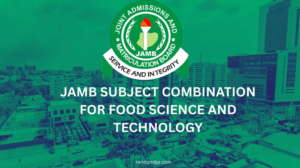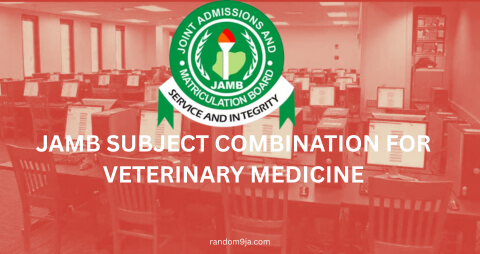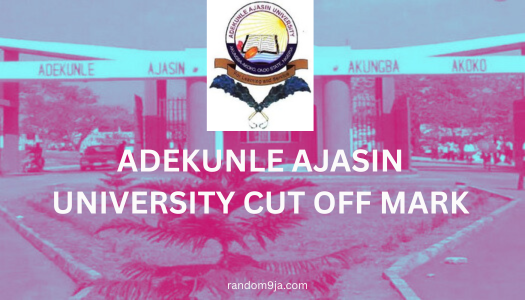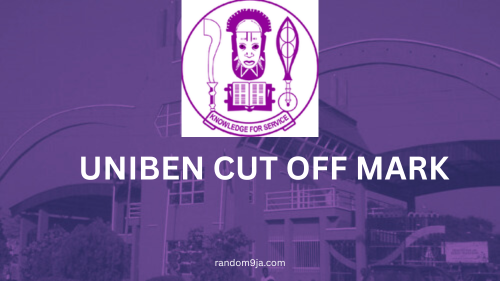JAMB Subject Combination for Food Science and Technology 2026/2027

Food Science and Technology is a multidisciplinary and highly practical field that focuses on the study, processing, preservation, packaging, and distribution of food. It combines concepts from chemistry, biology, engineering, nutrition, microbiology, and agriculture to improve food quality and safety. If you are passionate about food production, scientific research, and innovation in the food industry, this course may be the perfect fit for you.
This article provides everything you need to know, including the correct JAMB subject combination, O’level requirements, Direct Entry qualifications, universities that offer the course, career opportunities, and expert tips for gaining admission.
What Is Food Science and Technology?
Food Science and Technology is an applied science that focuses on studying the physical, chemical, and biological makeup of food. Students also learn advanced techniques for food production, preservation, innovation, and quality control. The goal is to create safe, nutritious, sustainable, and affordable food products for consumers.
The course plays a major role in agricultural development, food safety, public health, and industrial manufacturing. With Nigeria’s growing food industry, graduates of Food Science and Technology are in high demand across several sectors.
Why Study Food Science and Technology in Nigeria?
Studying Food Science and Technology opens the door to diverse career opportunities in research centers, food companies, manufacturing industries, laboratories, and government agencies. Nigeria is home to several food giants like Nestlé, Dangote Foods, FrieslandCampina, Unilever, Flour Mills of Nigeria, and many others that rely heavily on experts trained in food processing and quality management.
Additionally, with rising global concerns about food security and sustainable nutrition, skilled food technologists are needed now more than ever. If you enjoy science, innovation, and problem-solving, this course provides a rewarding and impactful career path.
Correct JAMB Subject Combination for Food Science and Technology
To study Food Science and Technology in any accredited Nigerian university, the correct JAMB subject combination is as follows:
-
English Language (Compulsory)
-
Biology
-
Chemistry
-
Physics or Mathematics
This subject combination ensures you meet the scientific foundation required for the course. Most universities prefer Physics, though some may accept Mathematics. To avoid mistakes, Physics is the safest choice.
WAEC/NECO/NABTEB O’Level Requirements for Food Science and Technology
Candidates must have at least five (5) credit passes in relevant subjects, obtained in not more than two sittings. The required O’level subjects include:
-
English Language
-
Mathematics
-
Chemistry
-
Biology or Agricultural Science
-
Physics
-
Plus one additional science-related subject (depending on the university)
Some universities may also accept credit in Home Economics, Food and Nutrition, or Further Mathematics as supportive subjects.
Direct Entry Requirements for Food Science and Technology
If you are applying through Direct Entry, here are the common requirements across Nigerian universities:
-
Two A’level passes in Chemistry and any one of Biology, Physics, or Mathematics.
-
OND, HND, or NCE with upper credit in related fields such as:
-
Food Technology
-
Science Laboratory Technology
-
Agricultural Science
-
Nutrition and Dietetics
-
-
JUPEB/IJMB passes in relevant science subjects.
Direct Entry students may be admitted into 200 level depending on the institution’s policies.
Cut off Mark for Food Science and Technology
JAMB’s general minimum cutoff mark is usually 160, but most universities offering Food Science and Technology prefer higher scores.
Below is a general cutoff guide:
-
Federal Universities: 180 – 220
-
State Universities: 160 – 180
-
Private Universities: 150 – 160
Your target should be at least 200+ if you want a higher chance of securing admission into top-tier institutions.
Universities That Offer Food Science and Technology in Nigeria
Many reputable universities across Nigeria offer this program. Some of them include:
-
Federal University of Agriculture, Abeokuta (FUNAAB)
-
University of Nigeria, Nsukka (UNN)
-
Obafemi Awolowo University (OAU)
-
University of Ibadan (UI)
-
Federal University of Technology, Akure (FUTA)
-
University of Uyo (UNIUYO)
-
Michael Okpara University of Agriculture, Umudike (MOUAU)
-
Federal Polytechnic Ado-Ekiti (for OND/HND routes)
-
Nnamdi Azikiwe University (UNIZIK)
-
Bayero University Kano (BUK)
-
University of Maiduguri (UNIMAID)
-
Federal University of Technology, Minna (FUTMINNA)
Each university may have slightly different admission requirements, so checking their brochure or JAMB CAPS portal is important.
Skills You Need to Succeed in Food Science and Technology
Although your academic qualifications matter, certain skills will help you excel in this field. These include:
-
Strong analytical thinking
-
Scientific curiosity
-
Attention to detail
-
Good laboratory skills
-
Innovative mindset
-
Problem-solving abilities
-
Interest in food production
-
Basic mathematical knowledge
-
Technical and hands-on skills
Developing these qualities will give you a competitive advantage both during the program and in your future career.
Career Opportunities in Food Science and Technology
Graduates of Food Science and Technology enjoy a wide range of job opportunities in various sectors. Some career paths include:
-
Food Technologist
-
Quality Control/Quality Assurance Officer
-
Food Safety Inspector
-
Product Development Specialist
-
Food Microbiologist
-
Nutrition Consultant
-
Packaging Technologist
-
Research Scientist
-
Production Manager in food industries
-
Regulatory Officer in government agencies (NAFDAC, SON)
-
Food Processing Engineer
-
Entrepreneur in food production
As Nigeria continues to industrialize, the food sector remains one of the fastest-growing industries. This makes Food Science and Technology a highly relevant and future-proof career choice.
Common Mistakes Students Make When Choosing JAMB Subjects for Food Science and Technology
Many students unknowingly choose wrong subjects that cost them admission. Here are common errors to avoid:
-
Choosing Agricultural Science instead of Biology in UTME
-
Submitting a subject combination without Chemistry
-
Selecting Mathematics instead of Physics in schools that reject it
-
Relying solely on JAMB without confirming university-specific requirements
-
Ignoring O’level subjects that require credit passes
Correcting these mistakes increases your admission chances significantly.
Tips to Score High in JAMB for Food Science and Technology
-
Start preparing early by studying past questions.
-
Focus heavily on Chemistry and Biology, as they carry more weight.
-
Study consistently, not randomly.
-
Register for a good tutorial center if needed.
-
Use recommended textbooks approved by JAMB.
-
Practice time management when solving past UTME questions.
-
Aim for 250+ if applying to competitive universities.
Scoring high gives you an edge, especially in federal universities.
Read Also: JAMB Subject Combination for Agriculture 2026/227 – Full Admission Guide (2025/2026)
Selecting the right JAMB subject combination for Food Science and Technology is the first and most important step toward gaining admission into your desired institution. The correct UTME subjects—English, Biology, Chemistry, and Physics/Mathematics—ensure that you are academically aligned with what the course requires. When combined with strong O’level results, proper preparation, and a clear understanding of university requirements, you significantly improve your chances of securing admission.
Food Science and Technology remains one of the most promising science-based courses in Nigeria, offering students the opportunity to contribute to food safety, innovation, and national development. Whether you aspire to work in the food industry, pursue research, or establish your own food-processing business, this field provides a stable and rewarding career path.





